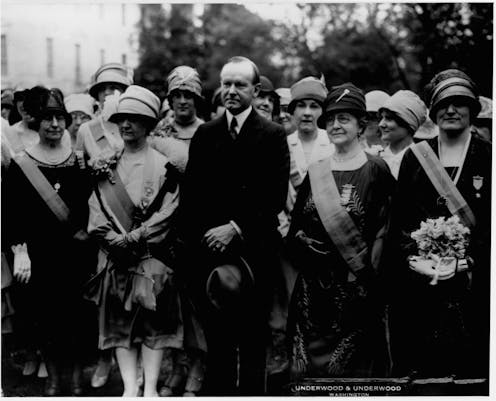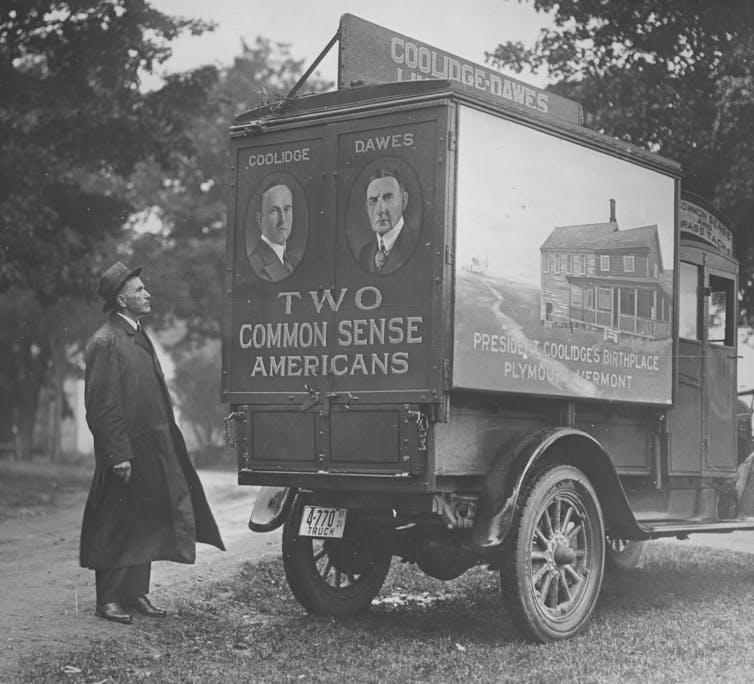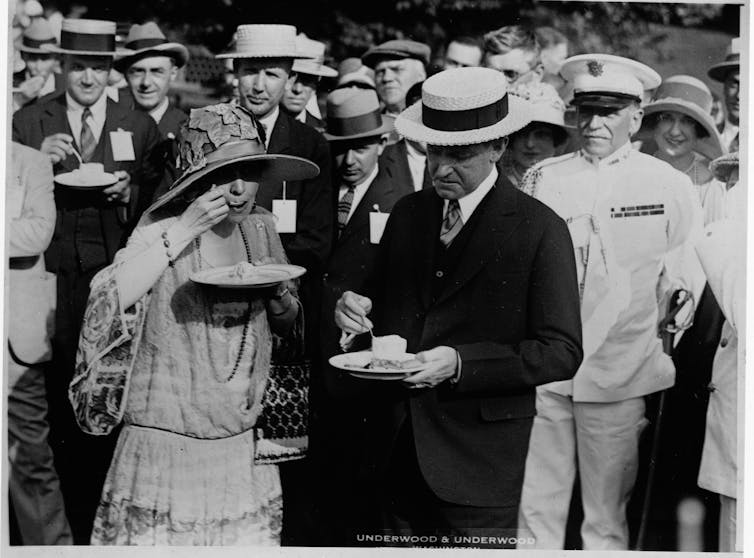Let's spare a few words for 'Silent Cal' Coolidge on July 4, his 150th birthday
US President Calvin Coolidge hasn’t gone down in history for his triumphs or failures as president during the 1920s – but his dry sense of humor carries on.

A woman sitting next to President Calvin Coolidge at a dinner party once told him she had made a bet that she could get him to say more than two words.
“You lose,” replied Coolidge, who served as president from 1923 until 1929.
During a White House recital, a nervous opera singer foundered through a performance before Coolidge. Someone asked him what he thought of the singer’s execution. “I’m all for it,” he said.
Coolidge was so taciturn that he was known as “Silent Cal.”
Three U.S. presidents – all of them Founding Fathers, John Adams, Thomas Jefferson and James Monroe – died on July 4.
Only one was born on July 4.
Calvin Coolidge was born in Plymouth Notch, Vermont, 150 years ago, on July 4, 1872. He died in January 1933.

Getting to know Coolidge
Fireworks rarely followed Coolidge during his political career.
Coolidge was balding, 5-foot-9 with a slight build, and he could walk into an empty room and blend in. He rarely smiled or changed expression. Alice Roosevelt Longworth, the daughter of President Theodore Roosevelt, described Coolidge’s dour expression by saying he looked as if “he had been weaned on a pickle.”
Such a description would not have offended Coolidge. “I think the American public wants a solemn ass as a president,” he said, “and I think I’ll go along with them.”
Best known for a laugh or two
The 30th president remains a footnote in the history of U.S. presidents. Coolidge was preceded in the White House by Warren Harding, whose administration was one of the most corrupt in U.S. history. Coolidge was succeeded by Herbert Hoover, who was in office when the country fell into the throes of the Great Depression, which began with the crash of the stock market in October 1929, several months after Hoover took office.
Coolidge is probably best known for his contributions to books of political humor. I included him in a 2020 book I edited, “The Art of the Political Putdown: The Greatest Comebacks, Ripostes, and Retorts in History.”
Coolidge, a Republican who believed in small government, low taxes, morality, thrift and tradition, rose quickly – but quietly – in Massachusetts politics, where he became president of the state Senate in 1914. While serving in this capacity, two senators got into a bitter exchange of words in which one told the other to go to hell. The recipient of the remark demanded that Coolidge take his side. “I’ve looked up the law, Senator,” Coolidge told him, “and you don’t have to go.”
Coolidge was elected governor of Massachusetts in 1919. He soon earned a national reputation for being decisive by firing striking police officers in Boston and ordering the state militia to bring calm to the city after the strike had left its inhabitants vulnerable to violent mobs in September 1919.
Warren Harding, the Republican presidential nominee in 1920, chose Coolidge as his running mate. Harding and Coolidge won the election. Coolidge then became president when Harding died in 1923.
Early in his term, in December 1923, Coolidge spoke to Congress and pressed for isolation in U.S. foreign policy and tax cuts. He believed in small government and also benefited from the country’s strong economic position in the early 1920s. This helped his popularity rise, and he got more than 54% of the popular vote in the 1924 election.

A genius for inactivity
If it was Coolidge’s decisive action that brought him to national attention, it was his inaction as president that defined his presidency and won him the admiration of political conservatives.
Newspaper columnist Walter Lippmann wrote this about Coolidge in 1926: “Mr. Coolidge’s genius for inactivity is developed to a very high point. It is a grim, determined, alert inactivity, which keeps Mr. Coolidge occupied constantly.”
Historians, however, praise Coolidge for presiding over low inflation, low unemployment and budget surpluses during every year of his presidency. He kept the country at peace and restored confidence in the government after the scandal-plagued Harding years.
But being president and taking daily naps still apparently left Coolidge with a lot of free time.
Coolidge reportedly liked to press the alarm buttons in the Oval Office, and when the Secret Service agents ran into the office to see what was wrong, he would be hiding.
Coolidge decided not to run for reelection in 1928. When reporters asked him why, he answered with characteristic succinctness. “Because there’s no chance for advancement,” he said.
If Coolidge had been reelected, he would have suffered Hoover’s fate of being president during the Depression. His political timing was as good as his comic timing.
Social critic H.L. Mencken once speculated on how Coolidge would have responded to the collapse of the stock market and the collapse of the nation’s economy.
“He would have responded to bad times precisely as he responded to good ones – that is, by pulling down the blinds, stretching his legs upon his desk, and snoozing away the lazy afternoons,” Mencken wrote. And yet the iconoclastic Mencken had this begrudging praise for Coolidge. “There were no thrills while he reigned, but neither were there any headaches. He had no ideas, and he was not a nuisance.”
When American writer Dorothy Parker, who, like Coolidge, could say much with few words, learned that the former president had died in 1933, she replied, “How could they tell?”
Chris Lamb does not work for, consult, own shares in or receive funding from any company or organization that would benefit from this article, and has disclosed no relevant affiliations beyond their academic appointment.
Read These Next
AI’s growing appetite for power is putting Pennsylvania’s aging electricity grid to the test
As AI data centers are added to Pennsylvania’s existing infrastructure, they bring the promise of…
From moral authority to risk management: How university presidents stopped speaking their minds
Nearly 150 universities and colleges have adopted institutional neutrality pledges since 2023.
Taboo tics like shouting curses and slurs are uncommon in Tourette syndrome − but people who have th
Obscene language tics, called coprolalia, don’t reveal what people with Tourette’s think and feel.…






